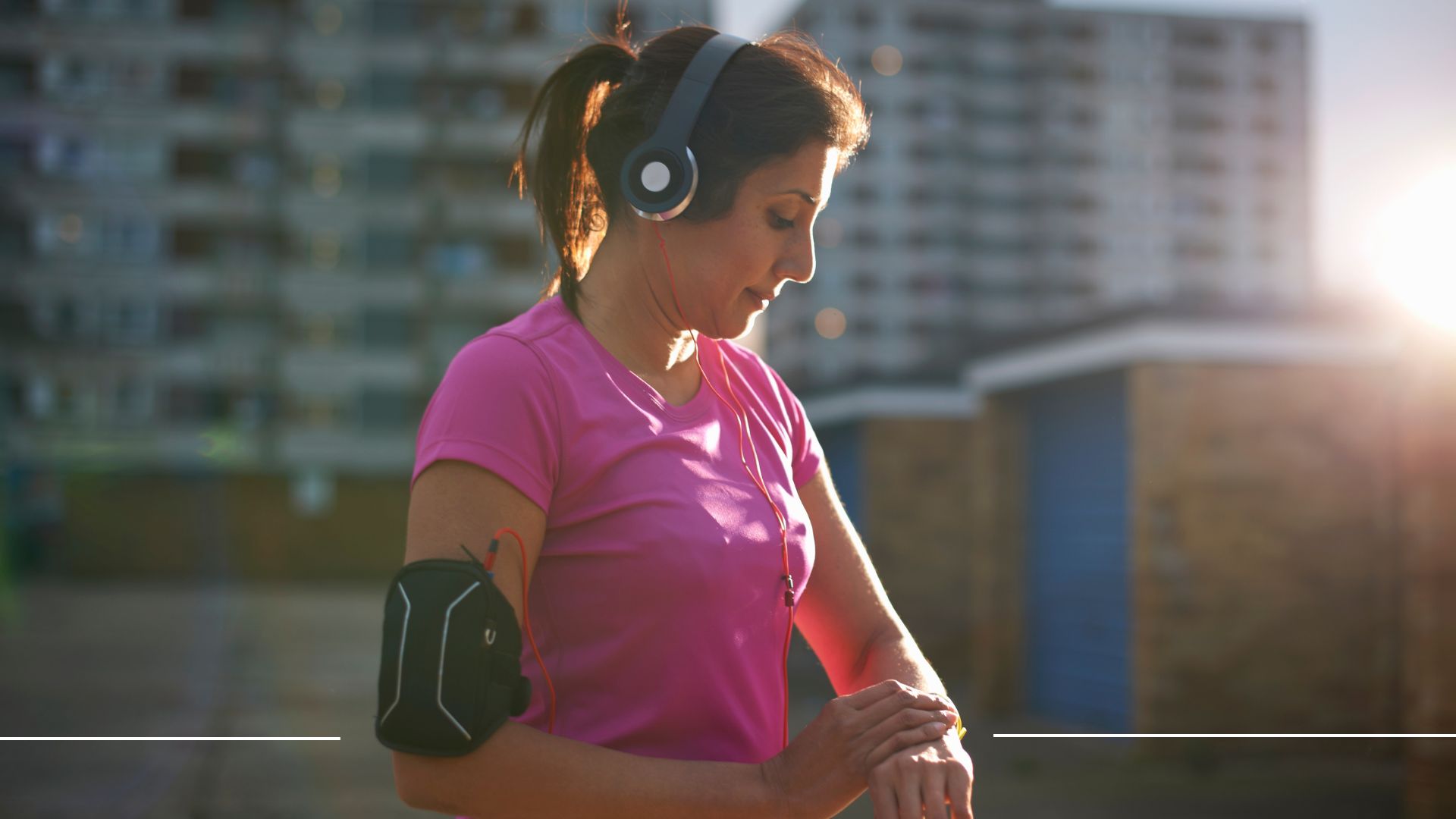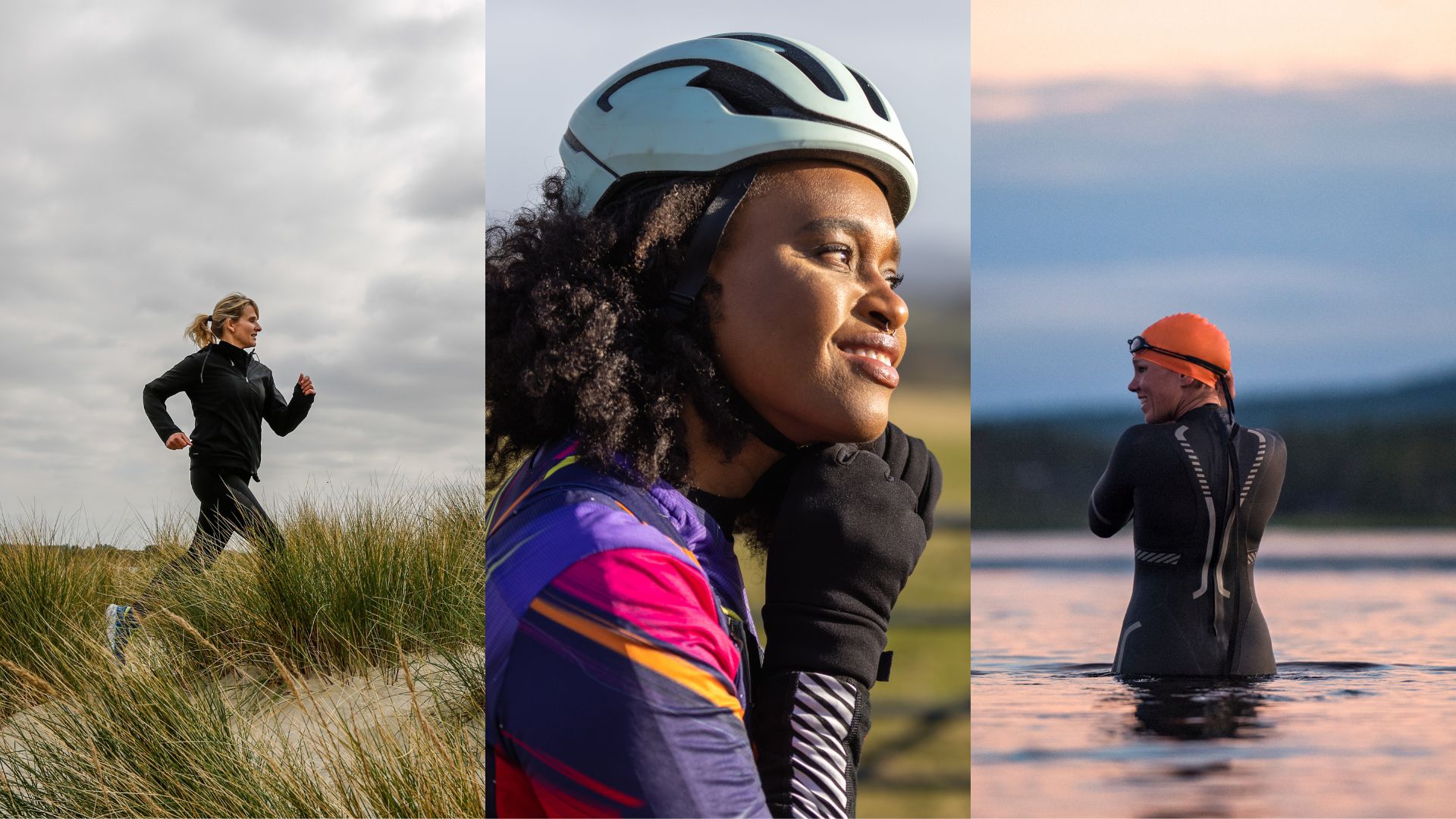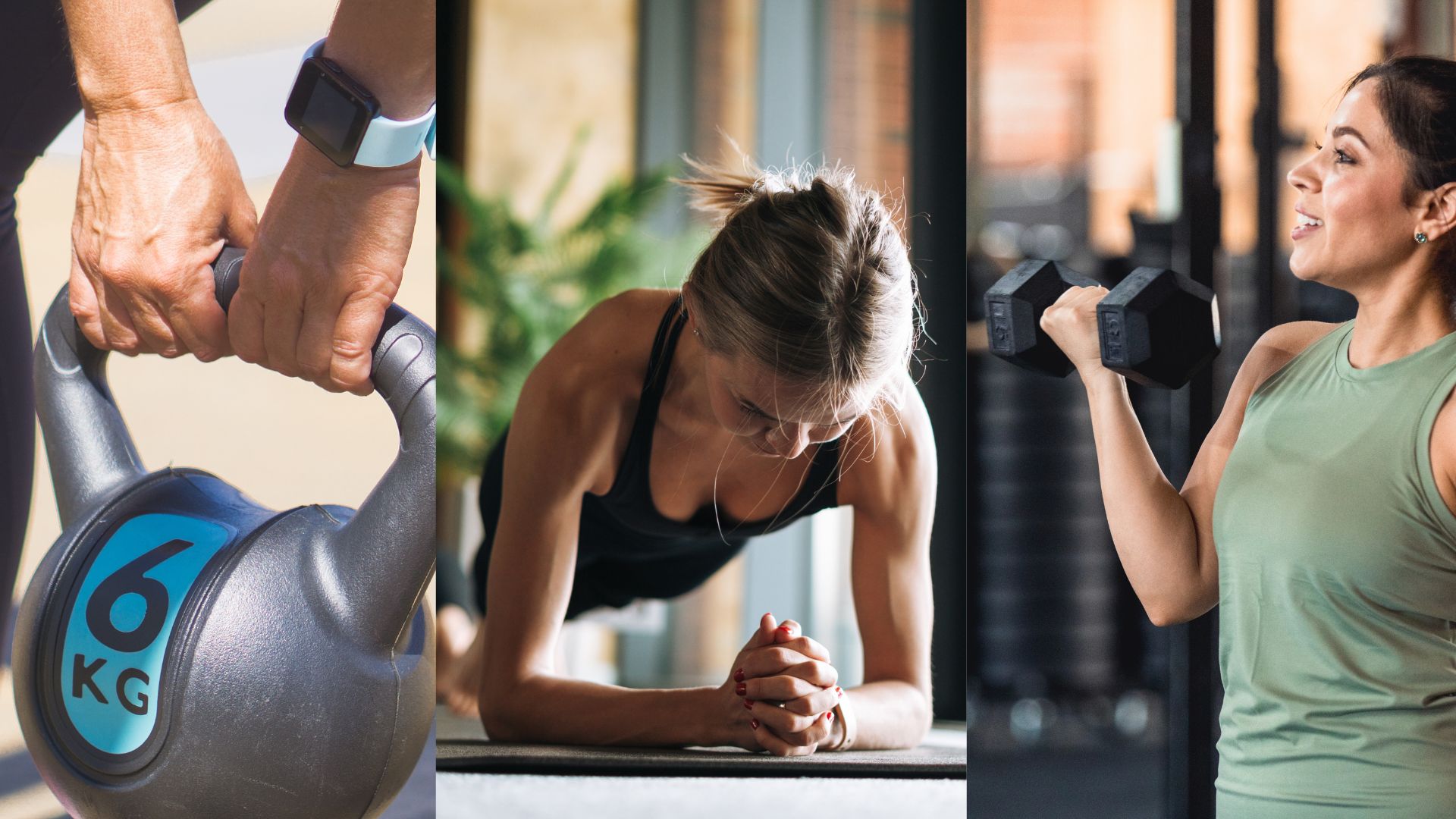
The best exercise for longevity has been confirmed by exercise scientists. Well, the best three exercises that, when combined together in a healthy and sustainable routine, have proven benefits to help us live better and for longer.
Longevity is the buzzword for 2025. We hear it when we're talking about our biological age and the famous 'Blue Zones' - but what does it actually mean? The National Institute for Ageing (NIA) defines it as the length of time an individual lives, influenced by a combination of genetic, environmental, and lifestyle factors. Research into longevity focuses on understanding how biological, social, and behavioural factors can help us have a "longer and healthier lifespan". In short, it's all about living healthier for longer.
Exercise is one important pillar in that. Here, woman&home speaks to experts with a background in medicine, fitness, and neuroscience to reveal the best exercise for longevity, how often to do it, and how you'll know you're seeing progress.
What is the best exercise for longevity?
I spoke to five experts, all with a deep knowledge of longevity from a medical, neuroscience, or fitness background. All five of them agreed - the best exercise for longevity was a combination of the following:
- Cardiovascular exercise, e.g. running, walking, swimming, cycling
- Strength training exercise, e.g. lifting weights, doing Pilates with weights
- Mobility exercise, e.g. stretching, yoga, or Pilates
Cardio exercise
At a basic level, cardio exercises work the cardiovascular system, helping to push blood around the body, says Pete Williams, a leading functional medicine practitioner, exercise scientist, and strength and conditional specialist. "They can be anything you choose and enjoy, whether that be walking, running, rowing, cycling, aerobics classes, or dancing. The important thing is to do it consistently."
Consistently means 150 minutes of moderate-intensity exercise every week, he explains, in line with NHS recommendations. "Moderate intensity means you can hold a conversation, but it's a bit laboured, and you may just need to take an extra breath. The alternative is higher-intensity exercise for 75 minutes, which is where you cannot hold a conversation."
Aiming for 150 minutes or 75 minutes is key, the scientist says, as most people don't get this and so don't reap the longevity benefits of exercise. Of course, the more you do, the more benefits you can have.
"A study in the Circulation Journal analysed data from over 100,000 adults across 30 years. It concluded that engaging in 150 to 300 minutes of moderate-intensity exercise per week can reduce the risk of all-cause mortality by approximately 20%, while increasing activity to 300 to 600 minutes per week may reduce mortality risk by 26% to 31%," he tells us. "This suggests that doubling the minimum recommended exercise duration can provide additional longevity benefits, but the most benefit is gained when someone goes from doing no exercise to being a consistent exerciser."

Strength training
Strength training is all about basic human movement patterns, says Williams. "Squat, lunge, a push (like chest presses) and a pull (like chin up) and then maybe a press above the head, or carrying heavy things. These are the fundamental movements and they work all the major muscle groups," he says.
"You need to be working those exercises a minimum of twice a week and getting progressively stronger over time," he adds.
According to a global analysis study conducted in association with Les Mills and looking at three decades of research, as little as 30 to 60 minutes of strength training every week is enough to reduce premature dying risk by up to a fifth.
"It boosts strength, fitness, calorie burn, and long-term fat loss, while offering heart health benefits, surpassing cardio and improving bone density - critical after 40 when bone loss accelerates," says Bryce Hastings, head of research at Les Mills. "It also reduces anxiety, lowers diabetes risk by 32%, and improves sleep quality, making it essential for both physical and mental wellbeing."
Other research shows strength training can take 8 years off your biological age if you do it a couple of times a week.

Mobility
"Mobility is one of those things that people often don't appreciate until they start to lose it, and it's absolutely not something we need to accept as a 'side effect' of ageing," says Lotti Sorrell, a personal trainer specialising in exercise for longevity.
"Mitigating stiffness and immobility can give people a huge amount of freedom as we age, keeping us independent and allowing us to stay active," she says.
Mobility exercises include hip extensions, wall squats, hamstring stretches, and cat-cow, as well as wall Pilates or a Pilates home workout and yoga stretches for beginners.
"If we can then start to focus on building movement where we can perform it with added load, to full range and with a balance element like a raised front heel, then suddenly we have one move that can hit a lot of longevity pillars all at once in the same amount of time," says Sorrell.
Other mind-body focused exercise also has benefits for longevity, says Dr Tamsin Lewis, a neuroscientist and functional medicine specialist. For example, yoga, Pilates, and Tai Chi. "Such practices lower ongoing sympathetic arousal, regulating cortisol and other stress-related hormones, improving sleep quality and further supporting hormonal equilibrium," she says.
"Intentional breathing patterns can shift you from a fight-or-flight response towards a rest-and-digest state, lowering cortisol and enabling more robust parasympathetic activity," adds Dr Lewis, who is also the founder and medical director of Wellgevity. As good sleep and lower stress levels also feed into longevity, this is very important.
What does longevity mean?
Longevity is about living a life that's longer but also of a high quality, where you maintain your cognitive health, physical health, and general independence to the end of your life - or well into old age.
While we can't always control our risk of developing certain life-limiting diseases, longevity research aims to identify the ways we can reduce this risk by embedding certain practices into our lifestyles.
It comes as no surprise that exercise routines are an important pillar in longevity - but it's not the only one. Eating well, getting good sleep, having low stress, positive social connections, and having a sense of purpose are all longevity pillars.
For example, "A diet rich in bone-friendly nutrients like calcium, vitamin D, and vitamin K2 is essential for bone health, as is protein. This is crucial for maintaining muscle mass," says Dr Elise Dallas, a women's health GP and menopause specialist at The London General Practice.
She also recommends avoiding certain lifestyle habits that have a proven impact on our health, such as smoking and excessive alcohol consumption. Stress and sleep also have a vital role to play, as noted by Dr Lewis.
How often should you exercise for longevity?
How often you should lift weights or how far you should walk every day for longevity benefits will depend on individual factors, says Sorrell, but most people will find a short 30 to 40-minute session, as little as twice a week, can be "absolutely life-changing".
"Any amount of training is better than no training, so start with a manageable amount that you can realistically and consistently fit into your schedule," she says. "For cardiovascular health, even a short walk of 20 to 30 minutes daily has been shown to have tremendously positive effects in terms of improving physical health-span and mental health."
How to monitor longevity through exercise
It's one thing to do the best exercise for longevity, but how do you know it's working? One key way to determine whether your cardio, strength, and mobility exercises are coming together to help you live longer and healthier is by taking a look at your Heart Rate Variability (HRV), says Dr Lewis.
"HRV indicates how effectively your autonomic nervous system adapts to stressors -higher HRV typically suggests better resilience," she explains. "By integrating practices such as mindful movement, group involvement, conscious breathwork, and supportive self-care, you can gently reshape your physiology, often reflected in improving HRV."
To find your HRV, you'll need to wear an electrocardiogram (ECG) device or chest strap. This measures the electrical activity of the heart. You can find these online, with the sensor incorporated into many of the best fitness trackers these days.
Longevity tips from exercise scientists
- Improve your agility: "I want to just mention falling and its impact on longevity. It’s such a big killer, particularly as we get over 60," says Williams. "Falling is a very explosive activity, so if you are never training yourself to do things quickly, you cannot expect your brain to quickly talk to your muscles to react to the act of falling." He says key movements include dance and quick-feet drills.
- Consider your hormones: "Women’s hormonal landscapes shift dramatically - whether month-to-month or across perimenopause and menopause. These changes shape everything from mood and energy to bone density and recovery capacity," says Dr Lewis. One way to manage hormone fluctuation is via HRT, she says. "[It's about]far more than symptom management, it's about protecting your longevity, through support to brain, bones, muscles, heart and the entire cardiovascular system."
- Look at your family history: So much of our health is down to genetics. As an example, Dr Dallas says: "Up to 85% of bone health is determined by family history. If your mum has osteoporosis or has experienced fractures, this is an important red flag for you. Research shows that women whose mothers had osteoporosis have a 50-80% higher risk of developing the disease themselves. Knowing this information allows you to take proactive steps early to protect your bone health."
- Think mental as well as physical: "Interestingly, one more aspect to longevity that has been consistently highlighted as a key consideration in all kinds of studies is social life! Having strong social relationships is something that can be just as crucial as improving physical health as we age," says Sorrell, who has launched a retreat for just this reason alongside Holistic Impact UK.


.png?w=600)




